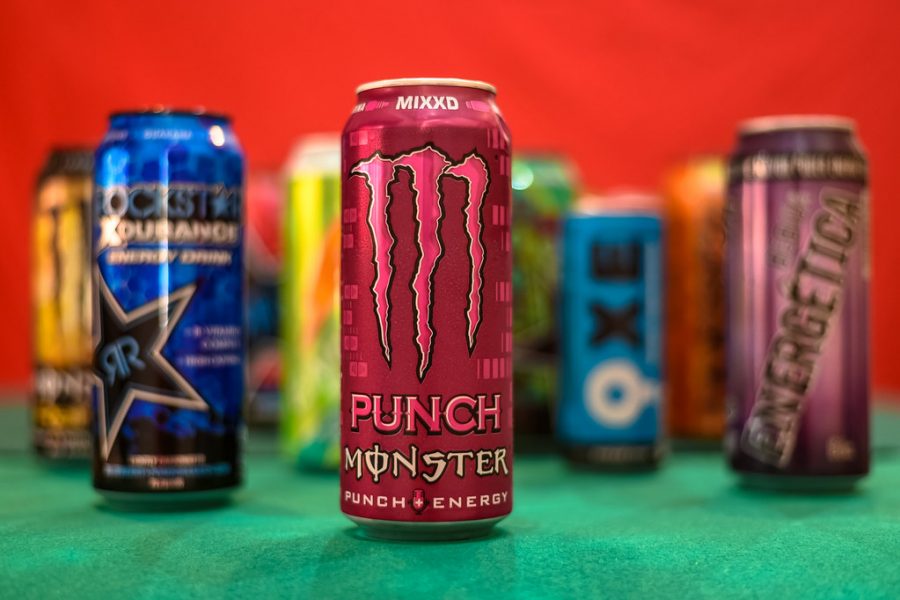The Rise of Monsters: energy drinks charge up teenage lives
Photo by Photo used with permission of https://www.flickr.com
Pictured here are some popular energy drinks like Monster, Bang, and Red Bull that teenagers find themselves drinking due to the fruity flavors and high caffeine levels.
83 percent of teens drink caffeinated beverages regularly, and nearly 96 percent consume them occasionally (health.usnews.com). However, not everyone’s go-to source of energy is coffee and caffeine packed energy drinks have made their impact on the American teenager. A 2018 report found that more than 40 percent of American teens surveyed had consumed an energy drink within the past three months, according to theatlantic.com
“I definitely think energy drinks are more appealing flavor-wise, just because coffee can be so strong, and I also like the fruity flavors that energy drinks have. They are just more appealing than caramel coffee,” Jack Mcgaghn, senior, said. “[I switched over to energy drinks] pretty recently, like two months ago. I saw a Youtuber do a sponsorship for Bang, and I started drinking Bang and I really liked it so I kept on drinking Bang.”
Emilia Mangiardi, junior, was introduced to the world of energy drinks after she developed a tolerance for coffee, but still needed more caffeine for her early call times and high energy demands of lacrosse.
“Coffee just like wasn’t doing it for me. It wasn’t giving me the energy that I needed. I had energy for about 30 minutes after drinking coffee but then after, I’d just be tired. Energy drinks held it and keeping it going for a longer amount of time. So throughout the whole lacrosse game, kept I’d still have that energy,” Mangiardi said. “All of our games are in the morning for tournaments so we had to get up at 6 am. I used to like coffee and caffeine, so I had to step it up pretty much and I got into energy drinks. I also started using C-4 (an energy powder that you can put in water to make an energy drink).”
Another reason that many teenagers find themselves gravitating towards energy drinks rather than coffee is the high energy for low price point value.
“ Coffee is kind of expensive, but Monsters at gas stations or 7/11 have sales going on for two or three bucks and they’re a lot cheaper than coffee,” Mangiardi said. “They’re not as healthy as coffee because they have more chemicals, but it just works.”
According to the National Center for Complementary and Integrative Health, “large amounts of caffeine may cause serious heart and blood vessel problems such as heart rhythm disturbances and increases in heart rate and blood pressure”. Looking forward, Mangiardi hopes to reduce her dependence on energy drinks, however, her jam-packed schedule does not make this goal seem attainable.
“I hope to die down [in drinking energy drinks] but the future just seems very busy and very exhausting. I want to get more sleep or try to get more sleep, but I can’t with the amount of homework that I have for school and like sports and work. So that’s why I really want [energy drinks] and in the future, there is no way,” Mangiardi said. “The other thing is the key to having good energy is eating healthy too, and like, I already eat healthily. I don’t know if I could just rely on just like sleep, food, and relaxation.”

After being in the journalism program for three years, Parul will be starting this year as a senior! Outside of the journalism lab, you can find her playing...

